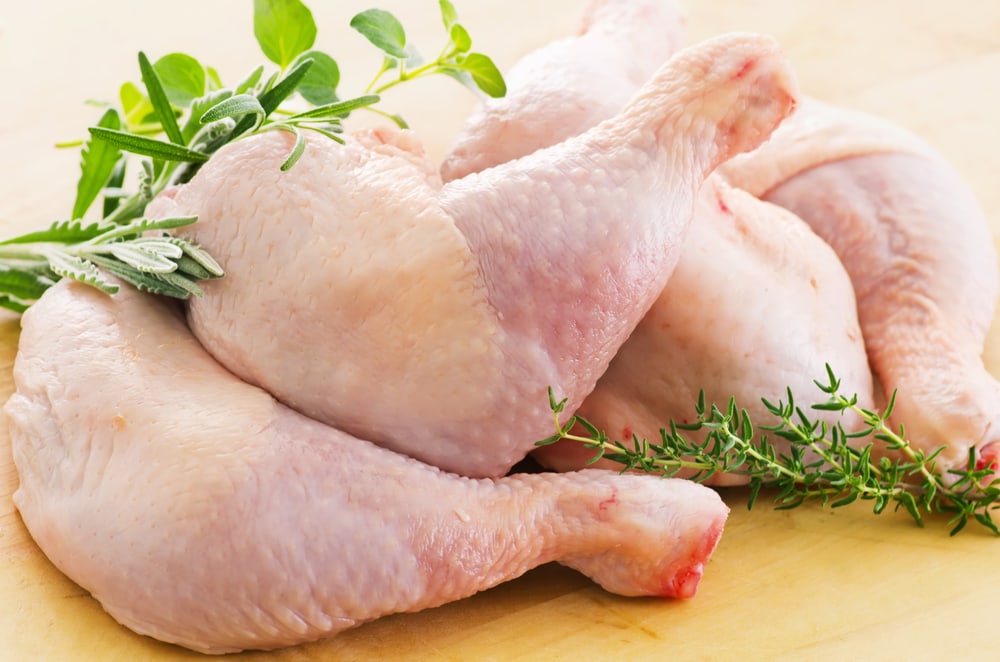Contents:
- Medical Video: VEGANS vs MEAT EATERS - Who Will Live Longer? Food / Diet Comparison
- Why can't you eat immature chicken meat?
- 1. Tipes
- 2. Bird flu
- 3. Stomach flu (gastroenteritis)
- 4. Guillain-Barre syndrome
- The characteristics of chicken meat are immature
Medical Video: VEGANS vs MEAT EATERS - Who Will Live Longer? Food / Diet Comparison
Chicken meat is a favorite menu in Indonesia. Maybe in a week you can consume more than three times chicken meat. Chicken meat is healthy, but you have to be careful. Eating undercooked chicken can cause contamination of various types of bacteria or viruses.
What diseases can arise when eating immature chicken meat? How do you distinguish between cooked and immature chicken meat? This is the answer.
Why can't you eat immature chicken meat?
In the chicken body there are various types of bacteria, viruses, and parasites that will stay alive even though the chicken is dead. This is because the organisms are still attached to the host in the body of the chicken.
Meanwhile, cooking chicken at a temperature of at least 74 degrees Celsius can kill various types of organisms that cause disease. Chicken meat can also be consumed safely if it's cooked perfectly.
Well, eating uncooked or even raw chicken is at risk of causing these four dangerous diseases.
1. Tipes
Typhoid or typhoid fever is caused by a bacterial infection Salmonella typhi. These bacteria live and breed in the body of livestock chickens. However, it does not mean that chicken chickens are full of bacteria Salmonella typhi. Usually this transmission occurs when there are people or traders of chickens that have been contaminated with the bacteria touching the chicken you bought.
If you get typhoid, you may need to be hospitalized. Especially if you experience diarrhea, bleeding, or serious digestive disorders. Typhoid symptoms usually only appear a few days to two weeks after you eat immature chicken meat containing bacteria. Symptoms include high fever, muscle pain, abdominal pain, nausea, weakness, and loss of appetite. If not treated immediately, typhoid can cause death.
2. Bird flu
The virus that causes bird flu, namely H5N1, has plagued Indonesia. Viruses that live in the body of chickens and other birds can be transmitted to humans. Especially if you consume immature chicken meat that has contracted bird flu.
Symptoms of this disease include coughing, difficulty breathing, sore throat, fever, muscle aches, runny nose, and diarrhea. Like other infections, this virus can cause death if not treated.
According to the recommendations of the World Health Organization (WHO), cooking chicken until the meat temperature reaches 74 degrees Celsius is able to kill the H5N1 virus. However, even though it has been cooked perfectly, you should not consume chicken meat from farms that have contracted bird flu.
3. Stomach flu (gastroenteritis)
Gastroenteritis is the medical term for stomach flu. The stomach flu itself is inflammation of the stomach or intestine due to infection. This disease is usually found after eating foods contaminated with viruses, bacteria, or parasites. Immature chicken meat can also cause stomach flu.
Symptoms that may appear are abdominal pain, diarrhea, vomiting, fever, chills, and dehydration. The appearance of these symptoms can take 1-3 days after consuming contaminated food.
4. Guillain-Barre syndrome
This one disease can cause muscle weakness to paralysis. The cause is a bacterial infection Campylobacter which might live in chicken meat. If not treated, paralysis can spread throughout the body until you breathe, you have to use a tool.
If you experience symptoms such as hand and foot itching, muscle aches, low blood pressure, irregular heartbeat, difficulty breathing, difficulty swallowing, and difficulty moving, see a doctor immediately. Guillain-Barre syndrome must be treated at the hospital as soon as possible.
The characteristics of chicken meat are immature
After knowing the dangers, do not be reckless or try to eat chicken that has not been cooked perfectly. In order to avoid the risk of illness because eating immature chicken meat, pay attention to chicken meat carefully. If the meat is still slightly red or pink or you are in doubt, don't eat it. The chicken meat is cooked white to the inside.
Aside from the appearance of the meat, pay attention to the texture of the meat. If your chicken feels chewy, tough, and hard to chew, it means the cooking isn't ripe. Ripe chicken should be soft, fibrous, and easy to chew.












